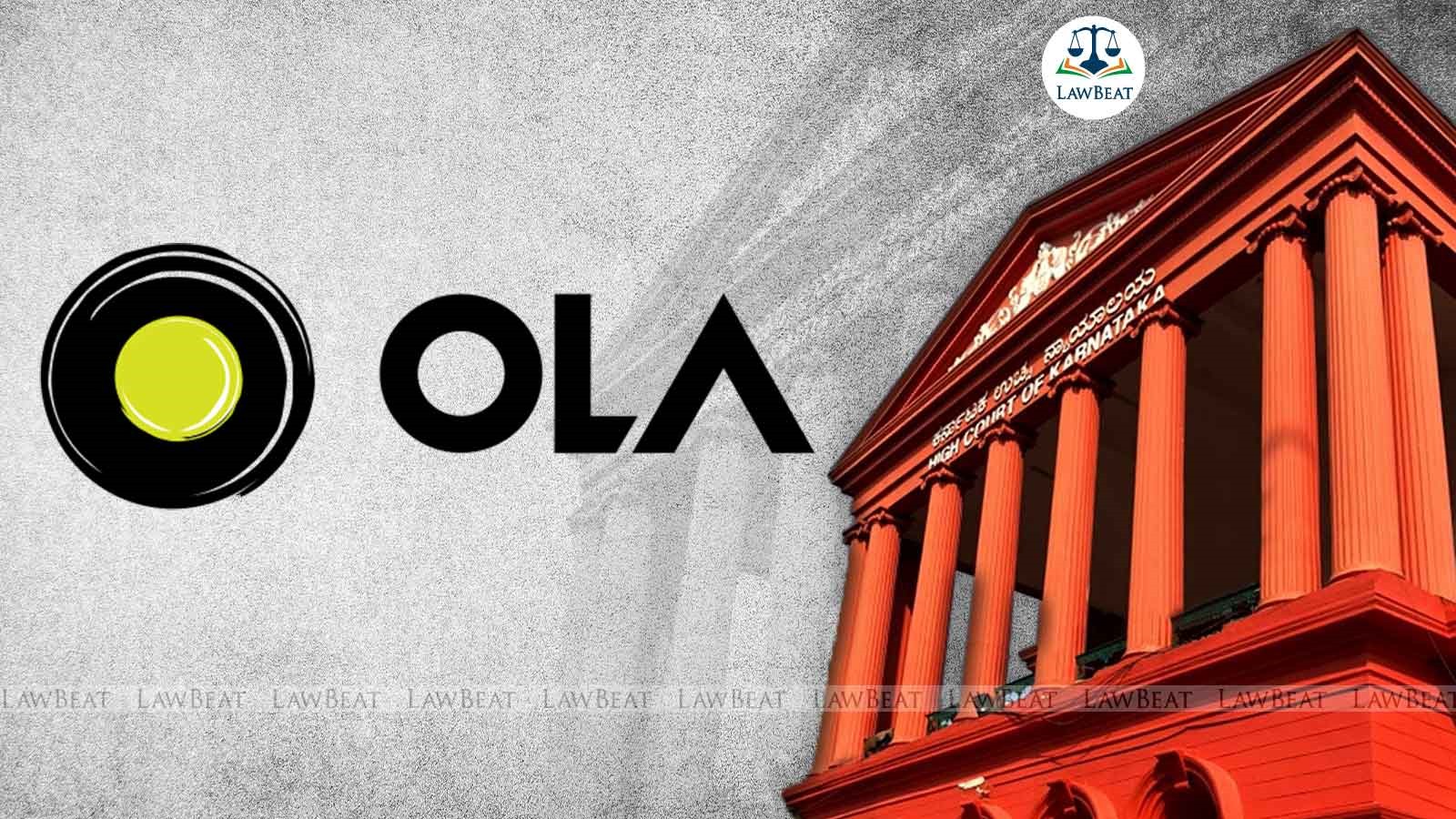Employer-Employee Relationship Between OLA and Its Drivers: Karnataka HC

Court highlighted that neither the Subscription Agreement nor the customer agreement on OLA's website explicitly states that OLA would not address complaints or be responsible for incidents during rides involving its 'driver-partners, as they are not its employees
The Karnataka High Court on Monday, September 30, 2024, held that a relationship of 'employer' and 'employee' exists between OLA and its 'driver-partners.' Court pointed out that OLA's definition of a 'driver'—the sole individual the rider interacts with—clearly shows that these drivers are evaluated, appointed, and trained by OLA's associated operator.
The bench of Justice M G S Kamal also noted that the term ‘employee’ encompasses a person employed on contract with or without the knowledge of the principal employer.
Referring to OLA's response to a rider in a sexual harassment case involving one of its drivers, court emphasized that OLA explicitly informed the rider that it is responsible for ensuring proper training for its 'driver-partners' and guarantees the safety of its services for users.
Furthermore, court highlighted that "nowhere in the Subscription Agreement or in the customers agreement available on the website of OLA, is there any categoric mention that OLA would not take any complaint or be responsible with regard to any untoward incident during the ride as its `driver-partner' were not its employees".
Therefore, court held that the Internal Complaint Committee (ICC) of the ANI Technologies Private Limited, the parent company of OLA Cabs, was guilty of deliberate negligence and inaction in not considering the victim woman's request to enquire into her complaint against the accused driver under the provisions of The Sexual Harassment of Women at Work place (Prevention, Prohibition and Redressal) Act, 2013 (POSH Act) on the purported premise of it lacking jurisdiction to enquire into the complaint, for the said driver not being the `employee' of OLA.
A writ petition was moved before the high court by a woman alleging that she was sexually harassed by an OLA cab driver in 2019 and asserting that her complaint to ANI Technologies' ICC was ignored. The ICC had declined to investigate the matter, citing a lack of jurisdiction.
In response to the woman's inquiry about the steps OLA had implemented to ensure women's safety and to initiate sexual harassment proceedings under the POSH Act, 2013, the company had replied that the driver-partner was not an 'employee' of OLA but rather an independent contractor, therefore, POSH Act, 2013 was not applicable and even any complaint filed before ICC of OLA could not be proceeded with as it lacked jurisdiction.
The company had further asserted that it lacked the power to take any disciplinary action against the driver except blacklisting/terminate the driver-partner and co-operate with the authorities of OLA diligently.
In the present case, the driver whom the woman accused of sexual harassment was not the designated driver; he was an impersonator.
Regarding this, the high court held that the impersonator, who was admittedly allowed to operate the OLA taxi by the driver-subscriber in violation of the Subscription Agreement and the Aggregators Rules 2016, could not be allowed to go scot-free merely because the ICC and OLA asserted that they lack control over both the driver-subscriber and the impersonator.
Court pointed out that OLA had accepted 'driver-swapping' incidents being a common phenomenon but it was admittedly neither taking any steps to curb the same nor bothering to bring the same notice of the authorities which indicated that OLA has the least priority in the matter.
The court, therefore, held that in not addressing the woman's complaint, the OLA and ANI Technologies Pvt. Ltd.'s Internal Complaints Committee were guilty of deliberate negligence and inaction.
Consequently, court held them bound to compensate the woman with Rs 5 lakh.
Court also directed the the company's ICC to conduct an inquiry into the woman's complaint as per the POSH Act, to be completed within 90 days with a report submitted to the District Officer. Court emphasized that the identities of those involved must remain confidential as per Section 16 of the POSH Act.
Case Title: XXX v. ICC, ANI Technology Pvt Ltd and Others
